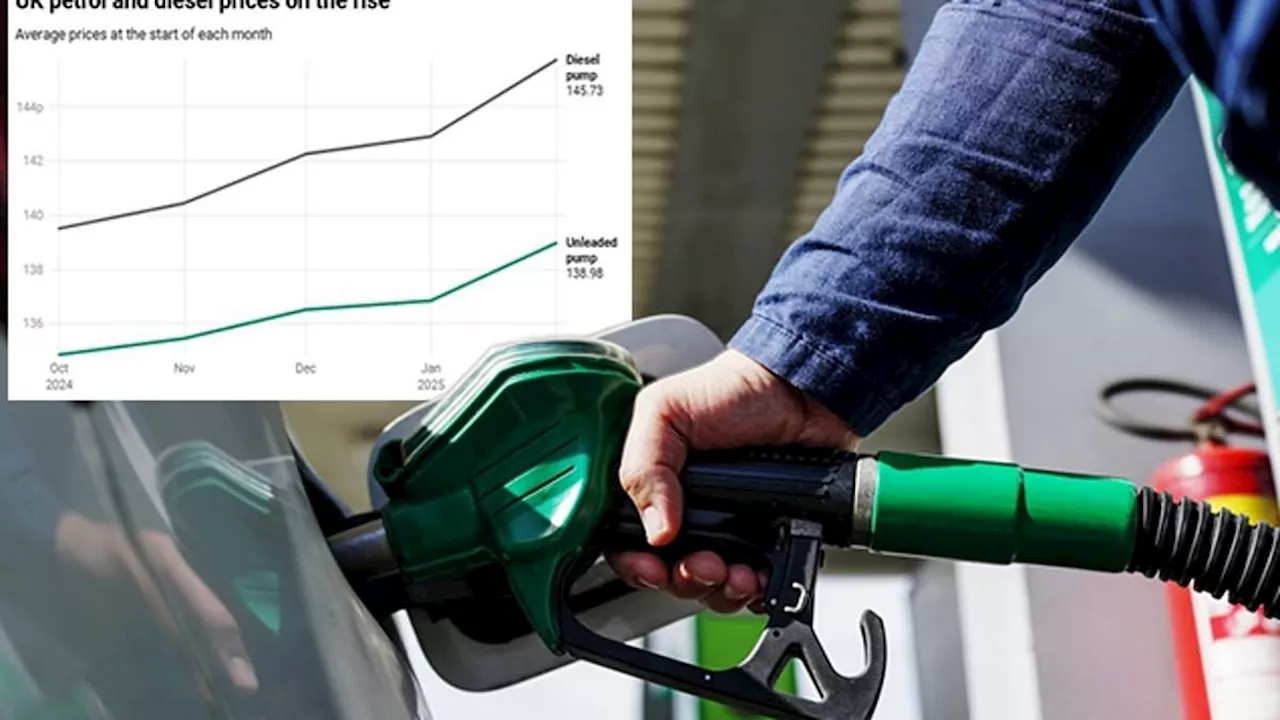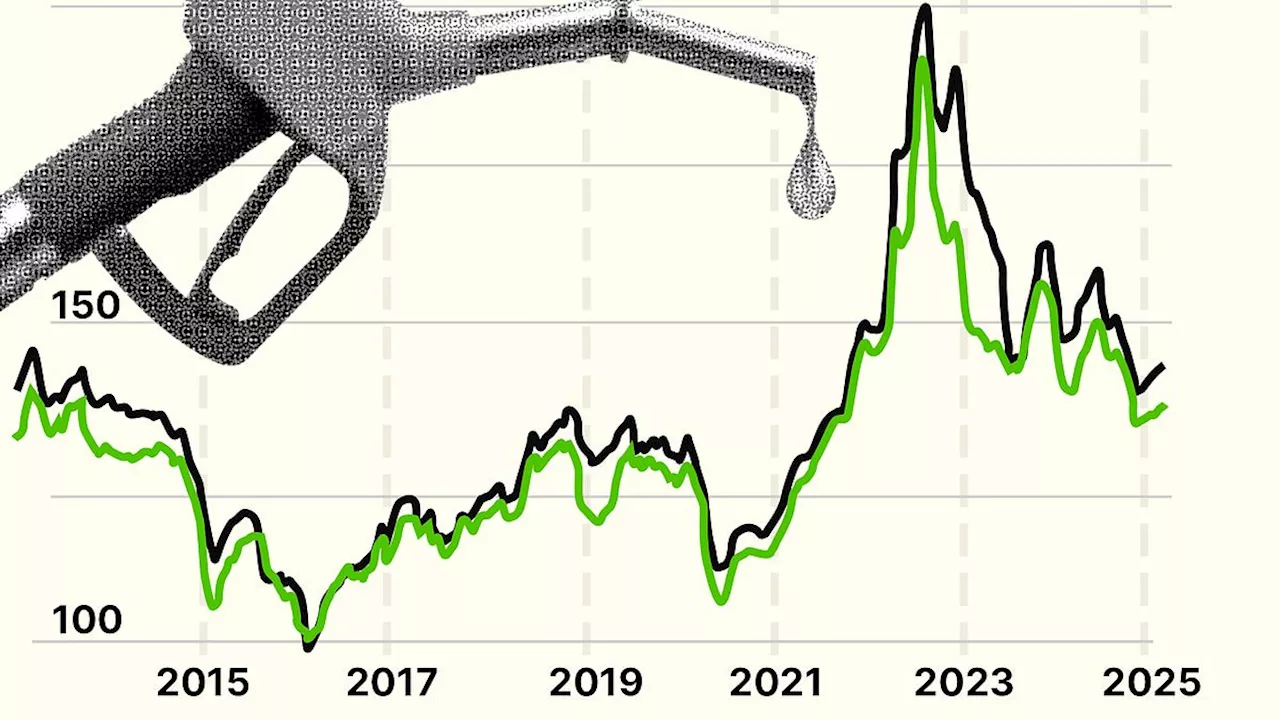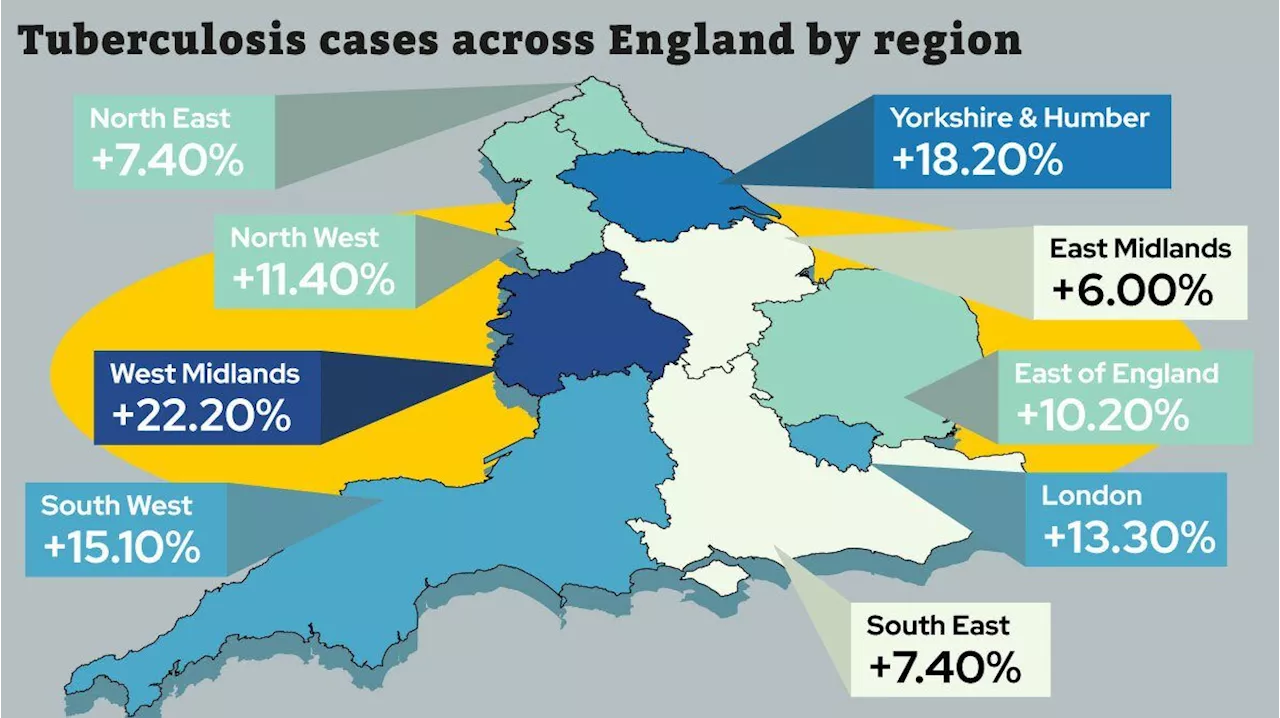New government figures reveal a 13 percent increase in reported tuberculosis (TB) cases in 2024, marking the fourth consecutive annual rise. While the number remains relatively low at 5,480 cases, experts express concern over the upward trend and its potential implications for public health.
New government figures show TB reported cases jumped by 13 per cent last year, their fourth consecutive yearly riseThere were 5,480 reported cases of TB in 2024, up from 4,850 the year before and 25 per cent higher than in 2022, according to the UK Health Security Agency – a number that remains relatively low but is the highest since 2016 and shows concerning signs of increasing, experts say.debilitating bacterial infection that usually affects the lungs and can be fatal.
Large urban centres are the major hotspots for TB because they have can have high levels of poverty, are densely populated and have more people born outside the UK, who are at higher risk.cost of living crisis Dr Wingfield added: “TB is the single leading cause of death from an infectious disease globally and although rates in England and the UK are low, they have increased year on year and we are far from WHO targets of achieving TB elimination. We should be concerned by any rise in TB cases be it in England or globally.”As in previous years, the vast majority of cases were reported in people who were born outside the UK, who accounted for 81.5 per cent of reported TB infections.
Professor Paul Hunter, of the University of East Anglia, said: “Any increase in TB is a matter of serious concern. It’s a nasty disease that can take months to treat with anti-tuberculous drugs. Untreated TB can be fatal or leave people with significant disability, while drug resistance is a problem and can lead to treatment failure.”Professor Steve Griffin added that the rising number of TB cases strengthens the case for broadening the number of children who have a TB jab.
TUBERCULOSIS PUBLIC HEALTH INFECTIONS UKHSA POVERTY
United Kingdom Latest News, United Kingdom Headlines
Similar News:You can also read news stories similar to this one that we have collected from other news sources.
 Fuel Prices Continue to Climb, Reaching Fourth Consecutive Month of IncreasesPetrol and diesel prices have risen again in January, marking the fourth month in a row of increasing fuel costs. Drivers are now paying significantly more to fill up their cars compared to just a few months ago. Experts attribute the price increases to a combination of factors, including a spike in oil prices and a weakening pound against the dollar. While some analysts predict a potential drop in oil prices later this year, the current trend remains concerning for motorists.
Fuel Prices Continue to Climb, Reaching Fourth Consecutive Month of IncreasesPetrol and diesel prices have risen again in January, marking the fourth month in a row of increasing fuel costs. Drivers are now paying significantly more to fill up their cars compared to just a few months ago. Experts attribute the price increases to a combination of factors, including a spike in oil prices and a weakening pound against the dollar. While some analysts predict a potential drop in oil prices later this year, the current trend remains concerning for motorists.
Read more »
 Drivers face fourth consecutive month of rising fuel billsThe cost of filling up cars continued to rise in January, marking the fourth straight month of increasing fuel expenses. Petrol prices climbed 2 pence per litre to an average of 139 pence, while diesel increased by nearly 3 pence to 145.7 pence. The RAC attributes the rise to a surge in oil prices and a weakening of the pound against the dollar.
Drivers face fourth consecutive month of rising fuel billsThe cost of filling up cars continued to rise in January, marking the fourth straight month of increasing fuel expenses. Petrol prices climbed 2 pence per litre to an average of 139 pence, while diesel increased by nearly 3 pence to 145.7 pence. The RAC attributes the rise to a surge in oil prices and a weakening of the pound against the dollar.
Read more »
 FA Cup 4th round draw details and Forest ball number after Luton victoryThe Reds are through to the FA Cup fourth round after their seventh consecutive win
FA Cup 4th round draw details and Forest ball number after Luton victoryThe Reds are through to the FA Cup fourth round after their seventh consecutive win
Read more »
 Belfast Councillors Reject Pay Rise For Fourth Year, Hand Control to Outside BodyBelfast City Council members voted against a pay raise for the fourth year in a row and agreed to transfer power over their wages to an independent body outside of the council. The decision comes amidst ongoing calls for greater transparency and accountability in councillor remuneration.
Belfast Councillors Reject Pay Rise For Fourth Year, Hand Control to Outside BodyBelfast City Council members voted against a pay raise for the fourth year in a row and agreed to transfer power over their wages to an independent body outside of the council. The decision comes amidst ongoing calls for greater transparency and accountability in councillor remuneration.
Read more »
 Elected reps at City Hall deny themselves pay rise for fourth year runningCouncillors agree to form body within City Hall taking power over pay 'out of their hands'
Elected reps at City Hall deny themselves pay rise for fourth year runningCouncillors agree to form body within City Hall taking power over pay 'out of their hands'
Read more »
 Petrol and Diesel Prices Continue to Rise for Fourth Month in a RowFuel prices have risen for the fourth consecutive month, with petrol and diesel prices reaching new highs. The RAC attributes the increase to a surge in oil prices and a weakening of the pound against the dollar. Drivers are now paying nearly £3 more to fill up their tanks compared to the start of October.
Petrol and Diesel Prices Continue to Rise for Fourth Month in a RowFuel prices have risen for the fourth consecutive month, with petrol and diesel prices reaching new highs. The RAC attributes the increase to a surge in oil prices and a weakening of the pound against the dollar. Drivers are now paying nearly £3 more to fill up their tanks compared to the start of October.
Read more »
